Episode 296: The Farm-to-Florist Wholesale Story Continues in Montana and North Carolina
May 10th, 2017
Podcast: Play in new window | Download
Subscribe: Apple Podcasts | Podcast Index | RSS | More
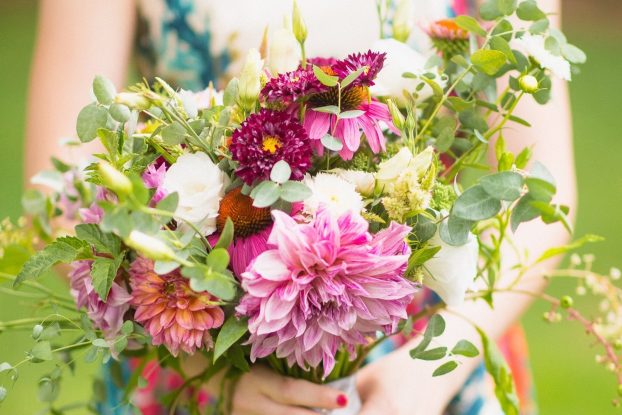
Local flowers grown and designed by Kelly Morrison, co-founder of Piedmont Wholesale Flowers. (c) Kissick Weddings
Many of you feel that pull — the desire to come together with like-minded Slow Flowers folks and create community, cooperation — and commerce — around local flowers. It’s a powerful urge, and I’ve been fortunate to observe and come alongside individuals all around N. American who are making something happen as a response to that pull.
Some of the ideas I’ve been tracking in my annual Slow Flowers Floral Insights and Industry Forecasts, since our first report in 2015, embody these themes. I just shared my thoughts about this with a group of Michigan flower farmers who are exploring a new wholesale model, so the timing is ideal given today’s podcast topic.
If you haven’t noticed, I’m here to tell you: New, Farmer-Driven Wholesale Hubs are meeting the growing demand for local, seasonal and sustainable flowers coast to coast.
On the heels of recent podcast episodes featuring an update about the Sonoma Flower Market’s second year and the new Twin Cities Flower Exchange’s launch (featured in Episode 290) and the episode celebrating the Seattle Wholesale Growers Market’s successful 6th Anniversary (featured in Episode 294), today I am delighted to introduce you to two emerging wholesale flower hubs, run by flower farmers and tailored to their floral customers. Both flower farmers are Slow Flowers members and I’m delighted to share their stories with you.
First, meet Kelly Morrison of Color Fields Farm and the new Piedmont Wholesale Flower Market, based in Durham, N.C. Our interview is followed by my recent conversation with Carly Jenkins of Killing Frost Farm and the Westside Flower Market in Missoula, Montanta.
These conversations really underscore the following themes I’ve been tracking in my annual forecasts:
- Cooperation and community – this idea needs no explanation other than to say, when flower farmers and floral designers convene, something explosive takes place – a harmonic convergence of nature and art, creativity and ingenuity. Wholesale hubs for local flowers foster that convergence.
- Micro regionalism – across North America, as farmers and florists form unique alliances for commerce, marketing and promotion, the net benefit means more local flowers available to more consumers.
- More farms selling direct – Flower farmers are increasingly taking power into their own hands to market their crops rather than abdicate to a wholesaler who may or may not represent their brands as they like.
And if you have any doubt about this cultural shift spreading far and wide, these two women’s stories will give you something exciting to consider, perhaps about your own marketplace.
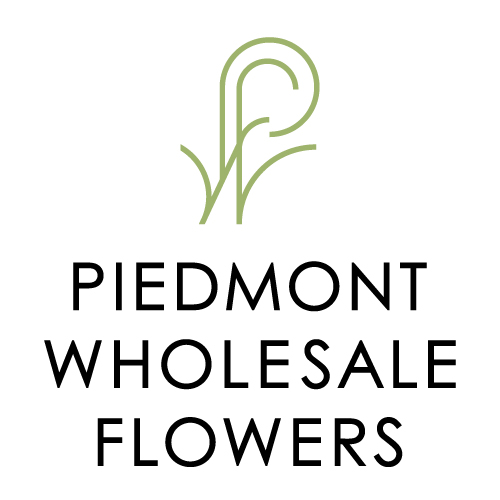 I met Kelly Morrison in person when I traveled to the Triangle NC area last September as a guest of Jonathan and Megan Leiss of Spring Forth Farm and Maggie Smith of Pine State Flowers, where we held a mini version of the Slow Flowers Creative Workshop and had a blast designing with gorgeous locally-grown flowers.
I met Kelly Morrison in person when I traveled to the Triangle NC area last September as a guest of Jonathan and Megan Leiss of Spring Forth Farm and Maggie Smith of Pine State Flowers, where we held a mini version of the Slow Flowers Creative Workshop and had a blast designing with gorgeous locally-grown flowers.
So it has been wonderful to correspond with Kelly about what’s happened since — and that is the debut of a local wholesale flower cooperative instigated by Kelly and two other flower farmers, Jillian Mickens of Open Door Farm and Katy Thelen of Happy as a Coneflower Farm.
Here is a little more about Kelly: A first generation farmer, Kelly comes from a long line of southern gardeners going back as far as anyone can remember. Plants and their stories are passed down in her family like heirloom jewelry or antique furniture. They are something to be shared. They have a history and a story to tell. They are intimately tied to their season. This connection to time and place drives Kelly’s work as both a farmer and a designer. Her goal is to bring the story and seasonality of flowers to her clients’ special event and also to their lives.
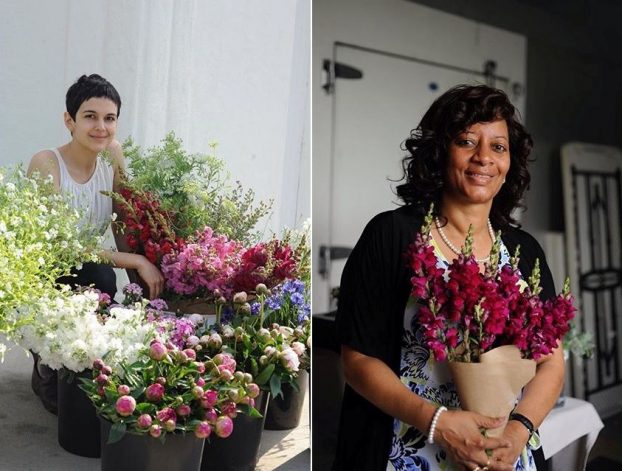
Piedmont Wholesale Flowers’ customers, from left: Maggie Smith, Pine State Flowers and Angella from Reinvestment Partners © Ali Donnelly
Color Fields is an organically-managed flower farm and floral design studio serving the greater Triangle NC area. Color Fields receives support from the Breeze Farm Incubator Program
The doors are open at Bull City Cool, a regional food hub that is hosting Piedmont Wholesale Flowers. © Ali Donnelly
Kelly recently wrote this blog post at her Color Fields web site: “About 2 years ago, I learned about the Seattle Wholesale Growers Market . They are a cooperative wholesale flower market providing locally grown flowers to florists, designers and other businesses.
The idea stuck with me. Why are flower farmers driving all over town delivering individual flower orders to all the same florists? Burning gas and time that would be better spent growing more flowers?
Beyond that, how do we get more sustainably raised, local flowers into more hands?
There is a massive amount of money being spent on imported flowers that could be diverted into the local economy supporting farmers who in turn spend that money on paying employees, shopping at local farm stores, etc.
People spend more money on weddings than probably any other event in their entire lives. Love it or not, that is the truth.
There is enormous potential to create a massive impact in our local farming community by making local, sustainably raised flowers more accessible to more people especially within the wedding industry.
So, I started pitching the idea to fellow farmers, designers and now with a lot of help and hard work, Piedmont Wholesale Flowers is a real thing. We are starting small, just a few hours a week in a rented warehouse space in Durham, but we have big dreams. We have the potential to completely transform the way local flowers are bought and sold in our area. We have the opportunity to bring more sustainability into our local wedding industry, to help make these incredible flowers easily available to more designers who want to support local, but found it too difficult to navigate in the past. This is a big deal.”
Indeed it is a very big deal and after an early spring soft launch, the Piedmont Wholesale Flowers hub will have its grand opening tomorrow, May 11th. With the mission of Providing high quality, seasonal flowers and foliage to the local wholesale community in the Raleigh-Durham-Chapel Hill Triangle area of North Carolina, Piedmont Wholesale Flowers is off and running . . . and I urge you to cheer them along with me! Piedmont Wholesale Flowers is co-located at Bull City Cool Food Hub and received a collaborative farmer grant from the RAFI (Rural Advancement Fund International).
Follow/find Piedmont Wholesale Flowers at these social places:
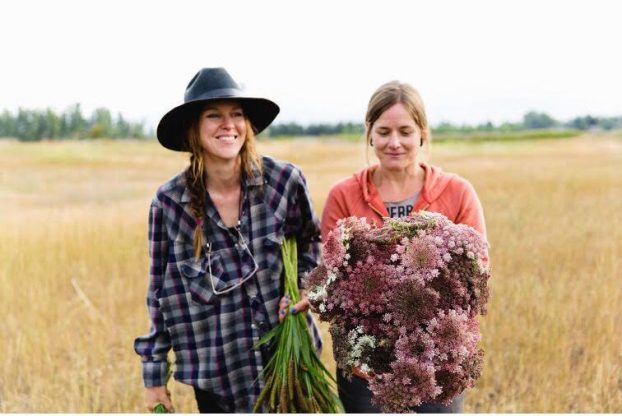
Carly Jenkins (left) of Killing Frost Farm and Katherine Sherba of Mighty Fine Farm, co-founders of Westside Flower Market in Missoula. (c) Theresa Bear
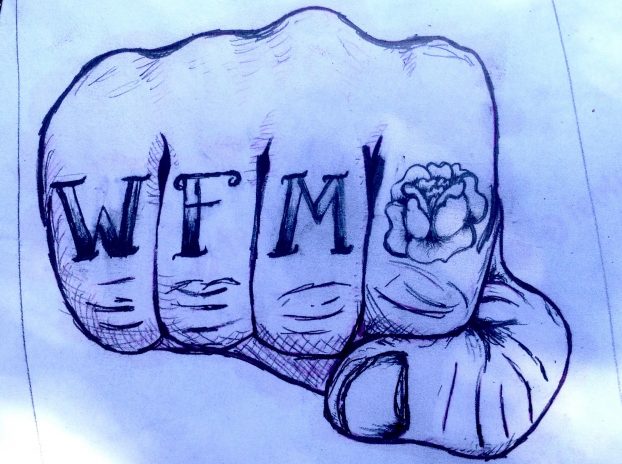
Love this original sketch of Carly’s for Westside Flower Market’s logo! It reflects the grit and glamour of her style.
Carly Jenkins and her husband Jamie Rogers are partners in Killing Frost Farm’s floral operation in Missoula, Montana. They grow and forage sustainably, design, craft like sons of guns, work with new growers and run a once-weekly wholesale flower market, Missoula’s Westside Flower Market.
I have known Carly virtually by our few email exchanges before and after she joined Slowflowers.com, and it was really fun to meet in person last month at Tobey Nelson’s Whidbey Island Flower Workshop.
Carly updated me on the wholesale market that she and Katherine Sherba of Mighty Fine Flowers launched in 2016. I asked if we could record their story for this podcast and Carly agreed.
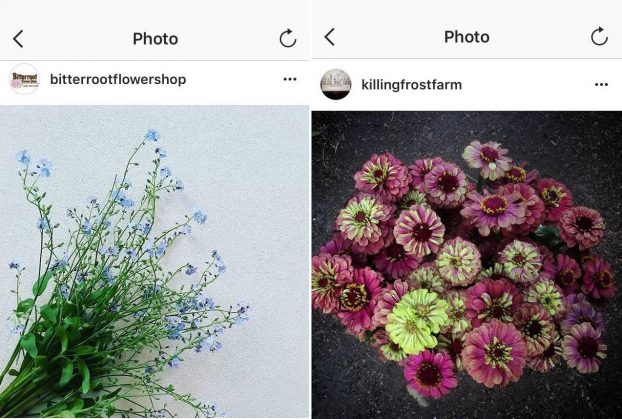
Lots of flower details are communicated through Instagram, by Carly and Katherine and by their customers at Westside Flower Market.
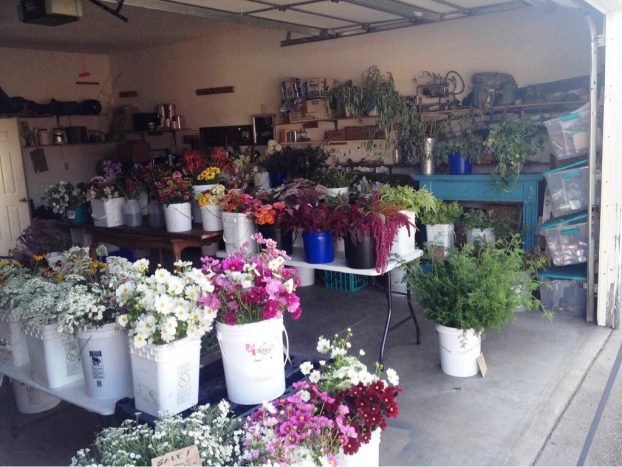
Westside Flower Market operates from Carly and Jamie’s garage. She explains: “This space, about 800-sq-feet, plus a canopy tent, is all we use. We only operate in cool, early morning hours as we don’t have a closed warehouse space. We do have a small insulated cooler room within the garage space — probably 150-sq-feet — but that’s as ‘High Rollin” as we get. Note that our florists buy flowers next to my recycling bin tower! It just goes to show it doesn’t have to be perfect as you’re getting the ball rolling — or hell, ever.”
Here’s a little more about Carly. She just took a writing workshop with me, so I’m really delighted to read you what she has penned to share with you:
“Some days I feel like an octopus trying to nab lunch but there’s so many tentacles, I can’t figure out which one to move. We are just a few years in, and still testing/adjusting/honing our business for both ourselves and for our area. I’m sure certain aspects will diminish as we grow into ourselves and others move to the foreground, but one arm that is a must for me is making sure our wholesale market continues in some form.
Every year I experience a laundry list of challenges in both farming and floristry, and every single one seems to make me better suited to run the Westside Flower Market.
I love putting beautiful product into our florists hands. I love the relationships – getting to know their style, finding things I know they want that sometimes they don’t even know they want. I love helping growers avoid the deer-in-the-headlights product drops and cold calls I endured my first season. There’s also no denying I’ve seen how powerful we are selling together (especially as a group of small scale farms in a small market). As we gear up to start our season, there’s a trust and camaraderie between florists and growers that WFM has no doubt helped create. There’s also a whole hell-of-a-lot of excitement for fresh, local flowers and foliage.”
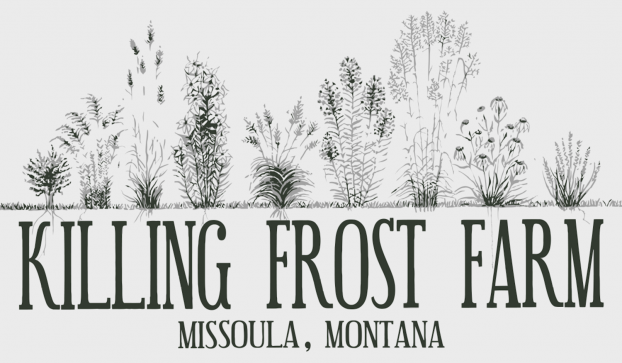 That gives you the current state of things at Killing Frost, but there’s a back story and I really loved reading it on the Killing Frost Farm’s web site. It explains how Carly and Jamie got to the point where they call themselves flower farmers:
That gives you the current state of things at Killing Frost, but there’s a back story and I really loved reading it on the Killing Frost Farm’s web site. It explains how Carly and Jamie got to the point where they call themselves flower farmers:
In 2012, Carly and Jamie bought a house on a single city lot in Missoula’s Westside neighborhood. The soil was rocky, ant-infested and barren. They tilled, weeded, and with a truckload of compost, began growing tomatoes, herbs and flowers.
In 2014, the house next door went on the market, and after a bit of financial finagling, the couple made an offer. With more soil to work, their gardening ambitions grew, and before long, taking care of their plants was not only tough on schedules, but hard on the wallet. A financially savvy friend recommended Carly and Jamie find a way to form an LLC, sell some of what they grew and treat those mounting gardening expenses as a business expense. By the fall of that year, they grew their first batch of microgreens. A week after the ground was frozen, they delivered some to a neighborhood restaurant, and Killing Frost Farm was born.
A lot has happened since then, including forming established relationships with local chefs and growing other types of produce for them. Carly and Jamie also upped the number of flower beds and sold edible flowers . . . before narrowing their focus to cut flowers for floral arrangements.
As they write on their web site: “It has been a frightening, stress-inducing, humbling ride so far, but it’s allowed us to quit our old jobs and spend our days working in dirt, together.”
In 2016, Killing Frost Farm broadened its horizons, thanks to help from friends who donated parts of their own backyards to grow tomatoes and flowers. Fellow Missoulans, Susan and Clayton Paddie (along with their daughter Dagny), transformed their entire yard into rows and low-tunnels for greens and flowers — what incredible generosity of time and energy to help expand Killing Frost’s business. Carly and Jamie say on their web site, “Starting something new is scary, particularly when you badly want it to work. Being a part of any community feels good, but we are grateful to be a part of this one.”
Find/follow Carly and Katherine at these social places:
Carly & Jamie/Killing Frost Farm on Facebook and Instagram
Katherine/Mighty Fine Farm on Facebook and Instagram
I don’t know about you, but I am so encouraged by these pioneering flower farmers who are going to do great things. They are charting a radical course for new floral models . . . and putting a priority on the greater goal of mutual success over individual success. My best wishes to Piedmont Wholesale Flowers and Missoula’s Westside Flower Market for a fabulous season!
 Thanks for joining us today. The Slow Flowers Podcast has been downloaded more than 187,000 times by listeners like you. THANK YOU to each one of you for downloading, listening, commenting and sharing. It means so much.
Thanks for joining us today. The Slow Flowers Podcast has been downloaded more than 187,000 times by listeners like you. THANK YOU to each one of you for downloading, listening, commenting and sharing. It means so much.
If you value the content you receive each week, I invite you to show your thanks and support the Slow Flowers Podcast with a donation — the button can be found on our home page in the right column.
Your contributions will help make it possible to transcribe future episodes of the Podcast.
Thank you to family of sponsors:
Arctic Alaska Peonies, a cooperative of 50 family farms in the heart of Alaska providing high quality, American Grown peony flowers during the months of July and August. Visit them today at arcticalaskapeonies.com
Seattle Wholesale Growers Market, a farmer-owned cooperative committed to providing the very best the Pacific Northwest has to offer in cut flowers, foliage and plants. The Growers Market’s mission is to foster a vibrant marketplace that sustains local flower farms and provides top-quality products and service to the local floral industry. Find them at seattlewholesalegrowersmarket.com
Longfield Gardens provides home gardeners with high quality flower bulbs and perennials. Their online store offers plants for every region and every season, from tulips and daffodils to dahlias, caladiums and amaryllis. Visit them at lfgardens.com.
Syndicate Sales, an American manufacturer of vases and accessories for the professional florist. Look for the American Flag Icon to find Syndicate’s USA-made products and join the Syndicate Stars loyalty program at syndicatesales.com.
Johnny’s Selected Seeds, an employee-owned company that provides our industry the best flower, herb and vegetable seeds — supplied to farms large and small and even backyard cutting gardens like mine. Check them out at johnnysseeds.com.
Association of Specialty Cut Flower Growers. Formed in 1988, ASCFG was created to educate, unite, and support commercial cut flower growers. It mission is to help growers produce high-quality floral material, and to foster and promote the local availability of that product. Learn more at ascfg.org
I’m Debra Prinzing, host and producer of the Slow Flowers Podcast. Next week, you’re invited to join me in putting more American grown flowers on the table, one vase at a time. And If you like what you hear, please consider logging onto Itunes and posting a listener review.
The content and opinions expressed here are either mine alone or those of my guests alone, independent of any podcast sponsor or other person, company or organization.
The Slow Flowers Podcast is engineered and edited by Andrew Brenlan. Learn more about his work at KineticTreeFitness.com.









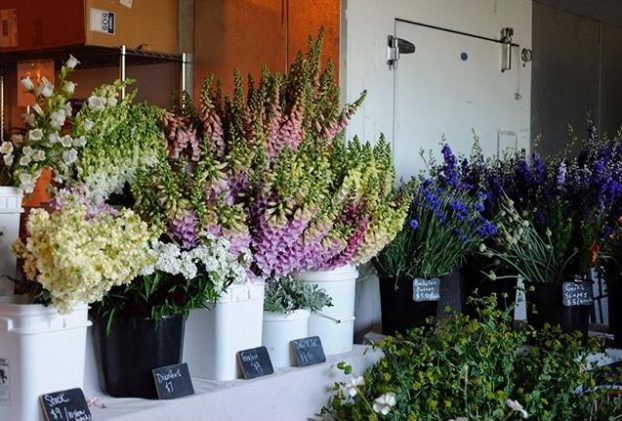
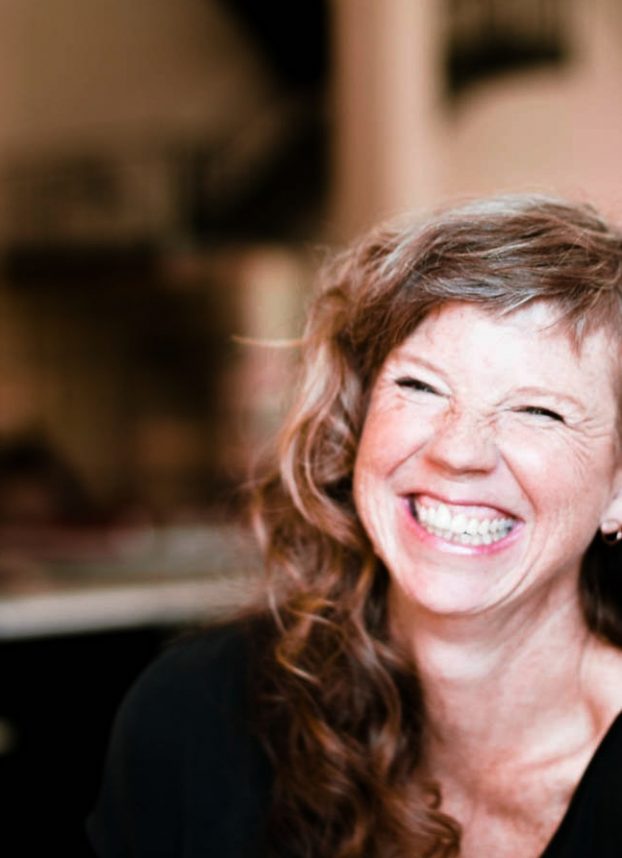
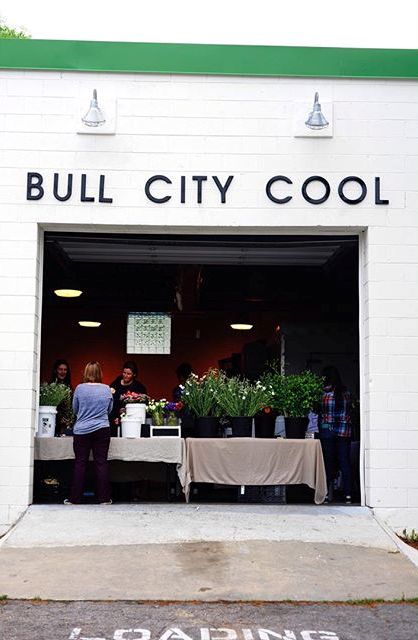
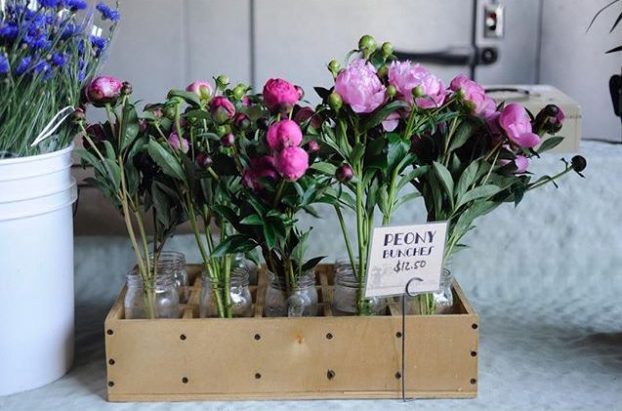
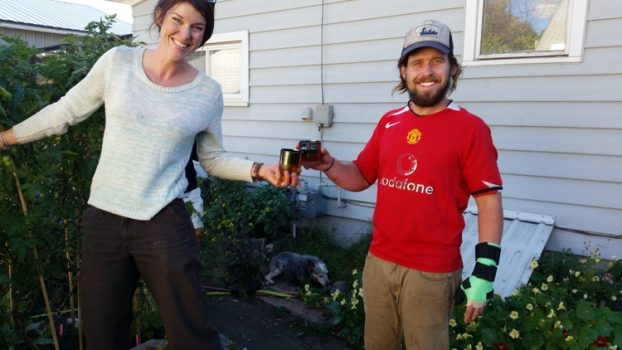
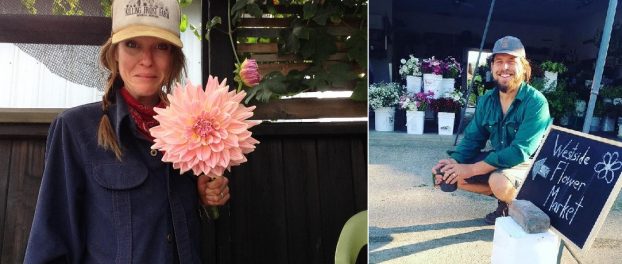
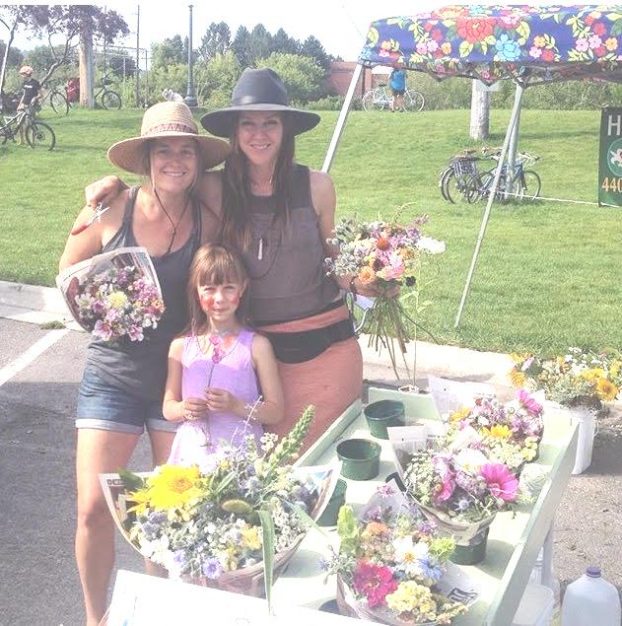
May 11th, 2017 at 12:25 pm
[…] [Full Original Podcast] […]
September 19th, 2017 at 8:39 am
[…] that she and Kathy incubated beginning last summer in Missoula garage owned by Carly and Jamie. You can hear our Slow Flowers Podcast interview from that visit […]
September 30th, 2020 at 7:26 am
[…] Missoula, Montana, in 2012. Carly shared some of their story when I first interviewed her for the Slow Flowers Podcast, episode 296, aired in May 2017. I’ll be sure to share a link to that episode, and to a subsequent […]